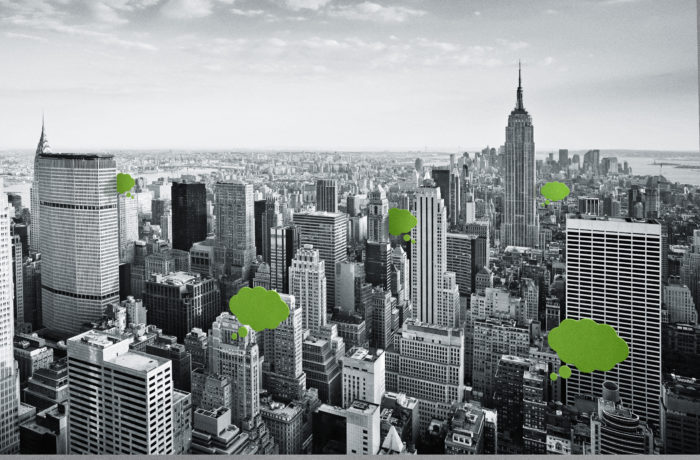Launched in August 2021, now with over 520 supporting organisations from 55 countries, NZCE has gathered to date 303 signatures from operators who have committed to the Pledge. Last year, phase 2 introduced a roadmap which set out a common framework for all stakeholders to make their net zero journey together. Developed by feedback from all supporters, the roadmap was focused on event operators and was adaptable to individual companies. It recognized the challenges of varying progress among organizations and aimed at decarbonizing the in-person element of events.
The Scottish Event Campus (SEC) has been involved in Net Zero Carbon Events since its inception at COP26 which was hosted at the venue in 2021, and it has been committed to supporting positive change in the industry. “The NZCE Roadmap has gone a long way in simplifying a complex subject for all the different stakeholders in our industry, from organizers to venues and suppliers. It provides guidance on key roles and responsibilities, indicative timelines, and key actions for progress. We use the roadmap continuously to sense check our strategic plans and we are weaving the guidance into our everyday activities,” says Kathleen Warden, Director of Conference Sales at SEC.
MOVING ONE STEP AT A TIME
With growing demand from event organizers for more eco-friendly meetings, signatories to the initiative are increasing, looking for guidelines on how to standardize their green offerings in line with the rest of the industry. In phase 3, NZCE has identified 8 workstreams to deliver on the priorities set out by the Roadmap: 3 are transversal (Measurement, Reporting, Carbon Offsetting) and 5 refer to the priority action areas (Venue Energy, Production and Waste, Food and Food Waste, Logistics, Travel and Accommodation).
Transversal Workstreams
Measuring the carbon footprint of events can be tricky and lead to false data, which is why NZCE is working on developing standard methodologies, metrics, and industry coefficients in order to harmonize results. It is currently in the process of collecting all available event-level data from its supporters so as to create a common measurement methodology.
Knowing the carbon footprint of an event helps specify offsetting actions. Based on a survey among the industry stakeholders, the initiative aims to gain a better understanding of which practices are currently in place, which ones are actually efficient and what are the potential barriers.
Participating companies will soon have to start reporting on their pathway progress, the actions taken so far as well as the level of communication they have reached with other stakeholders in the industry. This last element is, in fact, imperative as the validity of the initiative depends on the involvement of the majority of industry actors and their practical experience.
Priority Action Areas
One of the first realizations associations, destinations and partner organizations need to make in order to take action towards decarbonization is key focus areas. The NZCE initiative has set out five clear workstreams to develop technical guidance and set priorities straight: Venue Energy, Production and Waste, Food and Food Waste, Logistics, Travel and Accommodation.
The idea behind energy saving is simple: venues need to make the necessary changes so as to be able to power events efficiently with clean, renewable energy. NZCE’s job here is to present best practice examples for energy efficiency and provide a platform for communication and reporting strategy between venues and other stakeholders. Best practices are key also to inspiring a new design of events to utilize sustainable materials and be waste free.
“NZCE has identified venue energy as one of the key Action Areas that needs to be addressed to drive the industry to net zero, and this has been a key focus area for us as a business. We are contributing to the NZCE energy workstream, and we have had the opportunity to share our strategy with the international event community with the hope of inspiring others,” says Warden.
As food sourcing (and its waste after the event) are a big part of the transformation, it needs to become a priority in the sustainability journey. NZCE is now collecting data to create a document which will include different difficulty levels for actors with more and less experience/progress and the identification of high carbon foods commonly served. Partnerships with like-minded stakeholders in the food industry will play a key role in this.
Logistics is a less obvious barrier, but a significant one nonetheless. Zero emission logistics is the desired goal, with the right awareness and management being the focus of this workstream. Finally, tackling the main concern of our industry, travel and accommodation, requires close collaboration with partners in the travel sector to reduce and mitigate the emissions of travel to events. NZCE is putting together a simple set of requirements for hotel partners to provide a standard reference for sustainable accommodation.
In the path towards phase 4 of the initiative and COP28 in December, NZCE needs everyone to pitch in. Collecting data of success stories and failed attempts from all stakeholders involved is crucial. Reporting progress made as time goes by will provide hope and encourage more organizations to hop on the sustainability train.
“We’ve been able to speak to association event organizers and point them towards the roadmap and encourage many of our clients and industry partners to become part of the NZCE movement to a clean, green industry. We can do this, and we are delighted to be sharing our knowledge whilst learning from so many companies that are doing extraordinary work in this field,” concludes Warden.
